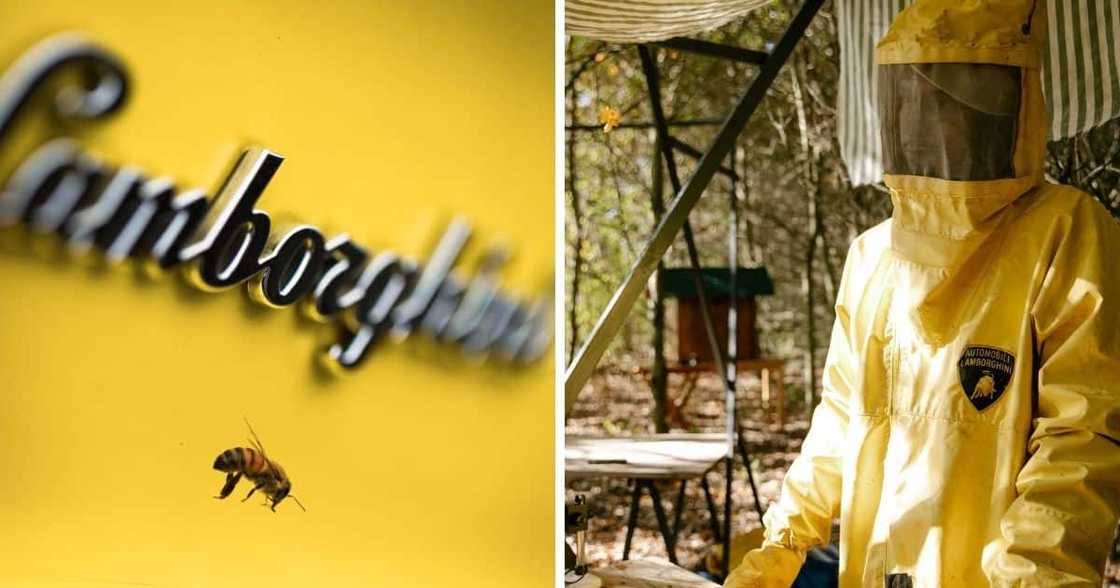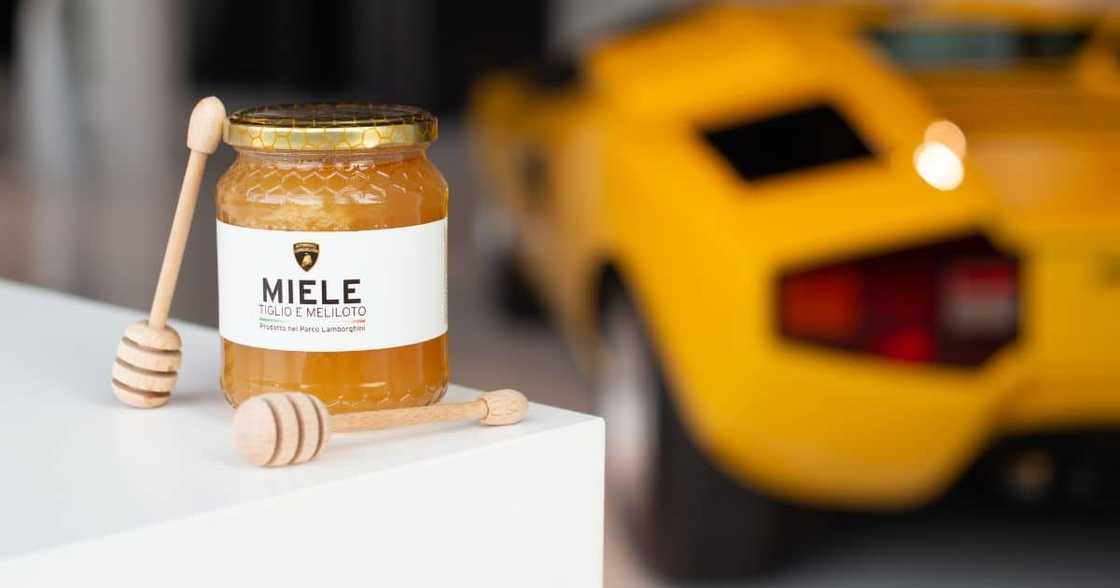‘Lambeeghini’ Environmental Program Sheds Light on 600 000 Bees at Sant’Agata Bolognese Headquarters in Italy
- Italian sport carmaker Lamborghini has invested in taking care of around 600 000 bees in the areas surrounding its Sant’Agata Bolognese headquarters and draws attention to it on World Bee Day
- 13 hives established in the Lamborghini Park apiary, around 120 000 of the bees forage within the local area and provide data for the company’s environmental bio-monitoring program
- Through its partnership with the Audi Environmental Foundation, last year Lamborghini established new ‘technological’ beehives
PAY ATTENTION: Follow Briefly News on Twitter and never miss the hottest topics! Find us at @brieflyza!
On the occasion of World Bee Day on 20 May, the growing population of 600 000 Lamborghini bees is busy monitoring CO2 levels in the area surrounding the super sports car manufacturer’s Sant’Agata Bolognese headquarters.
With 13 hives established in the Lamborghini Park apiary, around 120 000 of the bees forage within the local area and provide data for the company’s environmental bio-monitoring program, initiated in 2016 as part of its commitment to safeguarding the ecosystem.

Source: UGC
Through its partnership with the Audi Environmental Foundation, last year Lamborghini established new ‘technological’ beehives, featuring instrumentation to measure the internal and external temperature, humidity and wind speed, Newspress reports.
They also contain electronic scales to weigh the hive, in order to remotely monitor whether the bees are collecting enough nectar and pollen and whether the family is growing in line with expectations. The two technology beehives have an integrated SIM that can transmit the measured data.
PAY ATTENTION: Follow us on Instagram - get the most important news directly in your favourite app!
According to the Newsmarket, one of the hives also has two cameras, one internal and one external, which film access to the hive and show if the bees are working normally. The second hive has an electronic bee counter and draws graphs that compare the measured data with the number of bees entering and exiting the hive. This information helps researchers understand how climate change can affect the development of bee colonies and enables timely action to be taken to sustain them in abnormal seasons.

Read also
Department of Environment to spend R100m for state of the art SA Weather Service radar technology upgrade

Source: UGC
Through their intensive collection of nectar, pollen and water, foraging bees are efficient and targeted foragers in an area of three-kilometre radius around the hive, including not just the Lamborghini Park where the apiary is located, but also the surrounding countryside; the industrial area where the company is located; and the town of Sant’Agata Bolognese.
From the analyses of the hive matrices Automobili Lamborghini, in collaboration with entomologists and apiologists, can detect a wide range of pollutants: from pesticides used in agriculture and on urban and private green spaces, to heavy metals, polycyclic aromatic hydrocarbons, dioxins and many others.
For Lamborghini, the bee bio-monitoring project is not just about responsibility toward employees and their families, but also toward the local area, in order to ensure a healthy environment. It is a commitment to safeguarding the ecosystem, within which bees play an active and essential role.
The fastest camera car in the world is a R3,2 Million Lamborghini Huracan that can film at over 290km/h
The secret behind how some of the fastest cars in the world are filmed has been uncovered: a modified vehicle known as the 'Huracam' is behind the awesome shots, Briefly News reports.
The car is valued at over R3,2 million and is one-of-a-kind thanks to extreme modifications to accomplish what no other camera can achieve: film the fastest cars in the world.
The company that operates the 'Huracam' is ActivFilms a United States company that works out of Sacramento, California established in 2011. It lists itself as one of the leading car media outlets in the US.
Source: Briefly News



